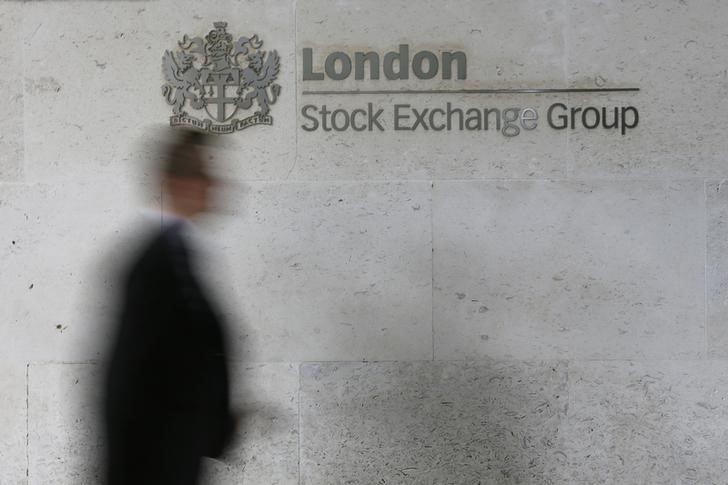By Sudip Kar-Gupta
LONDON (Reuters) - Britain's main equity index fell for a fourth day on Friday, pulled down by commodity stocks as iron ore prices plunged and as a stronger U.S. dollar weighed on mining shares.
Energy shares such as BP (LONDON:BP) and Royal Dutch Shell (LONDON:RDSa) dipped too with lower oil prices, although cruise ship company Carnival (LONDON:CCL) rose 7.2 percent after posting higher-than-expected profits.
The blue-chip FTSE 100 index, which hit a record intraday high of 7,065.08 points on Tuesday, fell 0.6 percent to 6,855.02 points. The FTSE recorded a weekly loss of 2.4 percent but remains up 4.4 percent so far this year.
Iron ore futures slid on the prospect that global producers would continue to lift output in a well supplied market.
The head of Rio Tinto (LONDON:RIO), the world's second-largest iron ore extractor, dismissed as "harebrained" a suggestion by smaller rival Fortescue Metals that miners should cap output to boost prices.
Rio Tinto fell 2.4 percent while rival miner Anglo American (LONDON:AAL) retreated 3 percent.
A rise in the dollar, which erodes the purchasing power of those buying commodities with other currencies, also hurt the sector.
Miners account for around a tenth of the FTSE, and their weakness meant the British market underperformed gains on rival European markets.
"Sustained losses for oil and copper have meant that the FTSE's influential commodity sectors have given no relief for the UK index," Spreadex analyst Connor Campbell said.
Oil prices dropped after a two-day rally prompted by tension in the Middle East over Yemen.
Goldman Sachs said the bombing of Yemen would have little effect on oil supplies because it was only a small crude exporter and tankers could find ways to avoid its waters.
Drugmaker Shire outperformed to rise 2.2 percent after UBS increased its price target on the stock, while Vodafone rose 0.3 percent after paying less money than investors had forecast in an Indian airwaves auction.

Joe Rundle, head of trading at ETX Capital, expected the FTSE's pullback to be relatively short-lived given record low British interest rates and an economic recovery. "I do think we're going to see a leg upwards next week," he said.